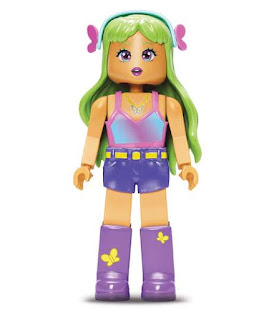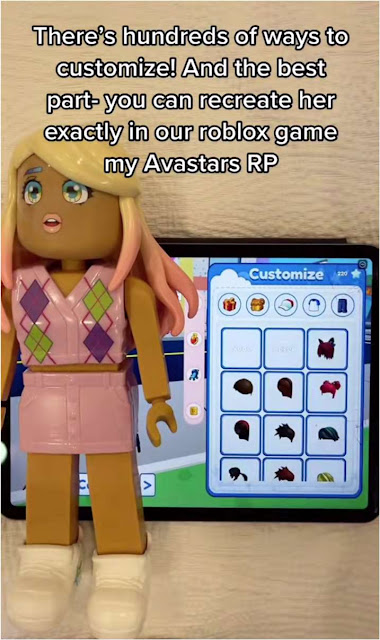Roblox Corp. v. Wowwee Gp. Ltd., 2023 WL 2433970, -- F. Supp. 3d --, No. 22-cv-04476-SI (N.D. Cal. Mar. 9, 2023)
Roblox runs a “digital world where users create virtual
games and experiences and connect with other users.” Users interact with the
platform through virtual characters known as “Avatars.” Roblox’s “Classic
Avatars” are “humanoid figures with cylindrical heads, C-shaped hands,
block-shaped bodies and legs, square or rounded arms, and cartoon-like facial
expressions.” (Comment: That is, they’re just like Lego minifigs.) Roblox
authorized plaintiff Jazwares to manufacture “Avatar Figurines,” real-world
toys based on the digital Avatars. Its TOS provide that users will not use
Roblox content outside of the Roblox Platform, monetize Roblox content, or
imply an association with Roblox for their businesses outside of the Roblox
Platform.
Wowwee sells a line of dolls called “My Avastars,” which
plaintiffs allege were “copied directly from Roblox’s Classic Avatars.” WowWee’s
Vice President of Brand Development & Creative Strategy, Sydney Wiseman,
used her WowWee email address to create a Roblox user account and used her
Roblox account to promote My Avastars dolls on social media, including videos
on her TikTok account. Wiseman narrates, “I was playing roblox and as I was
customizing my avatar I was inspired to create a doll line called my Avastars.”
Defendants allegedly marketed the My Avastars dolls with a “code” that could be
used in the Roblox platform.
Roblox sued for copyright infringement, false advertising,
trademark infringement, false association and false designation of origin,
trade dress infringement, intentional interference with contractual relations,
breach of contract, and false advertising and unfair competition under California
law.
The court found copyright infringement adequately pled as to
several figures, although substantial similarity was a “close issue.” “While
the features for which plaintiffs allege protection are similar to those of
other toys, there are differences including the customizability of features of
plaintiffs’ avatars and the shape of the avatars’ legs.” And defendants’ dolls
were “virtually identical” in shape to Roblox’s avatars.
Looking at the side by side pictures in the complaint, this is a bit hard to swallow, but the evidence of copying/references to Roblox clearly bleed over from the TM side.
| Lindsey Roblox avatar |
| Cindy Roblox avatar |
 |
| Allegedly jnfringing Dreamer My Avastars |
The trade dress claim also survived based on a trade dress definition that Lego surely doesn’t like: “a distinct overall look and feel stemming from at least their (1) humanoid, blocky shape; (2) cylindrical heads; (3) C-shaped hands; (4) block-shaped legs; (5) square or rounded arms; (6) cartoon-like facial expressions and lack of a nose; and (7) the particularized combination of these elements.”
 |
| more images from the complaint |
Interestingly, the contract/tortious interference claims
against US resident defendants had to be arbitrated because of its own TOS. And
Jazwares, Roblox’s licensee, lacked standing for copyright claims, but did have
Lanham Act standing because that doesn’t require copyright or trademark
ownership. “Jazwares has adequately pled injury due to customers associating
the My Avastars dolls with Roblox, leading to lost sales of Jazwares’ Avatar
Figurines.”

No comments:
Post a Comment